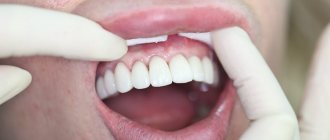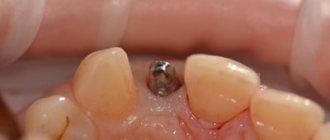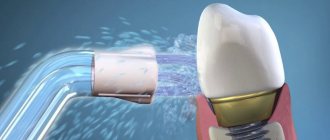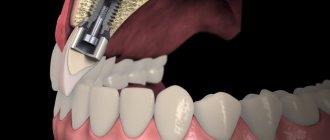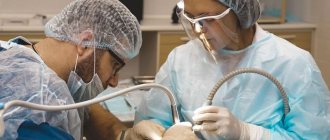11/26/2018 The main specialization of our clinic is carrying out complex dental implantation in a few days. This means that our patients receive new teeth immediately after installation of implants. Due to the fact that the treatment lasts only a few days, many people decide to undergo it before important events in life - meetings, performances, anniversaries and even before their own wedding. Of course, it’s a “sin” not to drink on them, because you need to not offend the owners of the house and wash your new teeth. Therefore, a completely reasonable question arises: is it possible to drink alcohol after dental implantation? And if possible, then how much.
To drink or not to drink: that is the question
We understand that sometimes a little sip is necessary. For example, so as not to offend the owners of the house or the organizers of the event. But here it is important to know when to stop and remember that new teeth are not only useful, but also quite expensive.
You personally need to weigh the pros and cons. Either get momentary pleasure, questioning the survival of the implants and risk losing the guarantee from the clinic, or still give up alcohol and enjoy your new teeth for a very, very long time.
To the question “can you drink after implantation,” our answer is categorical. NO. Check out our ARGUMENTS why we strongly DO NOT recommend drinking alcohol after having implants installed.
Alcohol and dental implants
Alcohol and implantation: is it possible or not?
What happens if you take alcohol before surgery?
Alcohol after implant placement
Alcohol and antibiotics
Risks associated with alcohol consumption
Dental implantation is a serious procedure that requires compliance with certain rules and restrictions. They spread not only before surgery, but also after it. Since restoring teeth using implantation takes several days, there is a chance during this period that you will be able to attend important events (weddings, birthdays, etc.) where there will be alcohol. Therefore, the question arises: is it possible to drink alcohol after implantation? If possible, how much? Does this affect the recovery process?
Bone tissue is destroyed, gums heal poorly
Any alcoholic drink contains alcohol and fusel oil, a fermentation product. In moderation, these oils are relatively harmless - they are what give the drink its flavor. Vodka is considered the “cleanest” drink, whiskey is considered the “dirtiest” drink. Fermentation products are also found in beer, but not only in the form of oils, but also in the form of bacteria, which can cause inflammation in an open wound. Therefore, neither pure alcohol, nor vodka, nor whiskey, and especially beer, can be used for antiseptic treatment of wounds, as some men believe. And beer can also generally cause tissue inflammation.
Please do not read the Internet and do not study the stories of people who wrote that “they drank alcohol after getting implants or a tooth removed and nothing happened.” A lot depends on the amount of alcohol consumed, the nature of the surgery, its complexity, your state of health and the medications prescribed. If it worked for others, this does not mean that you will not have complications either.
Fusel oil, which is contained in alcohol, leads to the following negative effects:
- irritation of the mucous membrane, which slows down the healing process and causes inflammation of the gums,
- if alcohol-containing drinks come into contact with a fresh wound, they can cause severe pain and even a small burn,
- vasodilatation, pressure surges and, as a consequence, prolonged bleeding,
- inhibition of all natural processes of the body, which affects the rate of “healing” of wounds,
- gradual destruction of bone tissue,
- increased risk of complications - hematoma, purulent inflammation, peri-implantitis and implant rejection.
Why are alcoholic drinks contraindicated before implantation?
Alcoholic drinks should be avoided at least 24 hours before the date for which the operation is scheduled. This is primarily due to the need to administer anesthetics. If alcohol enters the bloodstream, it can reduce the effectiveness of the pain reliever or provoke an allergic reaction. In addition, alcohol dilates blood vessels and affects blood clotting. This creates a risk of bleeding and other complications during surgery.
The period of abstaining from alcohol after surgery is much longer. There are also serious reasons for such a restriction, since alcohol in this case can also cause a number of negative consequences.
Antibiotics are prescribed, which means alcohol is prohibited
When implanting teeth, antibiotics are often prescribed (if teeth were removed before installing implants, there was pronounced periodontitis and periodontal disease). But antibiotics and alcohol are not compatible - not only your attending physician will tell you this, it is also written in the instructions for almost all drugs. The consequences can be both relatively harmless (the medicine simply will not work) or very sad - even death. Alcohol is prohibited during the entire period of taking antibiotics, as well as for at least 4 days after.
Yes, not all antibiotics cannot be combined with alcohol. But most of them. Among the unpleasant consequences are palpitations, nausea, vomiting, increased blood pressure and general intoxication of the body.
Alcohol and implantation: is it possible or not?
For many, alcohol is a universal means of relaxation, including during stressful situations. This is a feature of the Russian mentality. And although implantation is a painless and simple procedure, like tooth extraction, the very need to come to a dental clinic and spend about an hour in a chair causes stress for many. Of course, this fear is understandable and understandable, however, implantologists strongly recommend abstaining from drinking alcohol for at least a couple of days before surgery, as well as for at least two weeks after. Ideally, you should give up alcohol for the entire duration of implant healing (2 – 6 months)
.
Perhaps there are people around you who could afford to drink a little during the rehabilitation period and this did not affect the final result. But we must remember that there are individual characteristics of the body, and what suits one person is absolutely not suitable for another.
You forget that you need to see a doctor
Such situations, of course, arise if the patient drinks alcoholic beverages for a long period of time. Shifting the visit to the doctor by 1-2 days (after a month after installation of the implants) is allowed. But in the first week, visits to the doctor should be strictly day-to-day.
If a patient misses regular visits to the doctor, if the prosthesis is not adjusted, this can lead to disruption of the healing process of the implants and the functioning of the entire jaw system. For example, the bite changes due to improper closing of the jaws; the prosthesis will cause overload of the implants and the temporomandibular joint. Therefore, it is necessary to adhere to individual visit schedules.
The effect of alcohol on immunity
Alcohol consumption negatively affects immunity at all levels. Alcohol burns the mucous membranes, which causes additional trauma to the tissues and impairs the healing process. In addition, alcohol reduces the activity of macrophages - cells that destroy harmful bacteria. The negative effects of alcohol also extend to other cells of the immune system, which protect the body from various infectious agents. Therefore, during the period of “engraftment” of the implant, it is important to maintain the normal functioning of the immune system: balance the diet, enrich it with vitamins and minerals, and completely eliminate smoking and alcoholic beverages.
Operation concept
Sinus lifting is a specific operation that is prescribed to patients in case of insufficient thickness of their own bone tissue. It is carried out in the upper jaw area, thickening the bone, which has atrophied. This is a real surgical procedure that is performed by experienced and well-trained dentists. The essence of the action:
- The doctor uses osteotomes to push back the bottoms of the sinuses through a narrow gap in the gum.
- The empty space is filled with artificial bone.
- The procedure is completed, and the material takes root over time.
Bone wasting can be caused by the following factors:
- characteristic features of the jaw structure;
- age-related changes;
- long-term lack of pressure on a specific area due to tooth loss in the past.
Quite often, a sinus lift is needed if the patient has lost a tooth a long time ago. It does not matter whether it was an injury or a forced removal, the result is always the same - there was no load on the gums, and, consequently, bone tissue atrophy occurred. Another common case is the low location of the maxillary sinus, resulting in a lack of space for implant installation.
The sinus lift procedure has been in great demand among dentists for 30 years, since with its help any patient has the opportunity to appreciate all the advantages of dental implantation, regardless of existing dental diseases.
Risks associated with alcohol consumption
| Poor oral hygiene When heavily intoxicated, a person often does not control his actions, so he may skip brushing his teeth or do it incorrectly. For example, by damaging the installed implant or gum. |
| Risk of damaging implants Alcohol increases appetite - that's a fact. You can unknowingly eat something that is prohibited in the first days after implantation: hard meat, nuts, etc., which in the future may negatively affect the implantation of the implant. |
| Decreased immunity Alcoholic drinks, even in small doses, affect the functioning of the immune system and slow down the body's natural processes. The wound will take a long time and heal worse, and the risk of implant rejection increases. |
| Failure to comply with doctor's visit schedule It is a mistake to think that after installing an implant you can forget about going to the dentist. You also need to take care of the implant as you would your own teeth: come for a check-up every six months and do professional hygiene. Otherwise, inflammation of the surrounding tissues will occur and, as a result, implant rejection. |
Many patients forget that the guarantee for treatment is valid only if they regularly undergo follow-up examinations, 3D diagnostics and a complex of professional hygiene.
Rehabilitation period
In addition to avoiding strong and low-alcohol drinks, patients after sinus lift and bone grafting should adhere to the following recommendations:
- avoid heavy physical activity and active sports;
- postpone air travel for a month;
- try to climb to high floors by elevator, rather than on foot;
- carry out the prevention of colds, since due to severe sneezing, runny nose and cough, implants may fall out;
- Avoid foods that are too hard, hot or cold;
- Try not to drink drinks through a straw.
Such recommendations are universal and suitable for every patient, regardless of the type of surgery performed. But, in some cases, the dentist may prescribe a special diet, mouth rinse and healing medications to speed up the recovery process.
Increased appetite and relaxed state
For a certain period after surgery, the patient is required to adhere to a certain diet, from which various solid foods that can damage the implant, as well as some irritants, are excluded.
Our body is designed in such a way that drinking alcohol stimulates a strong appetite. After drinking a bottle of beer or a couple of glasses of wine, you may simply break down and start eating everything, including prohibited foods. Ultimately, all this will affect the implants and the quality of their healing.
